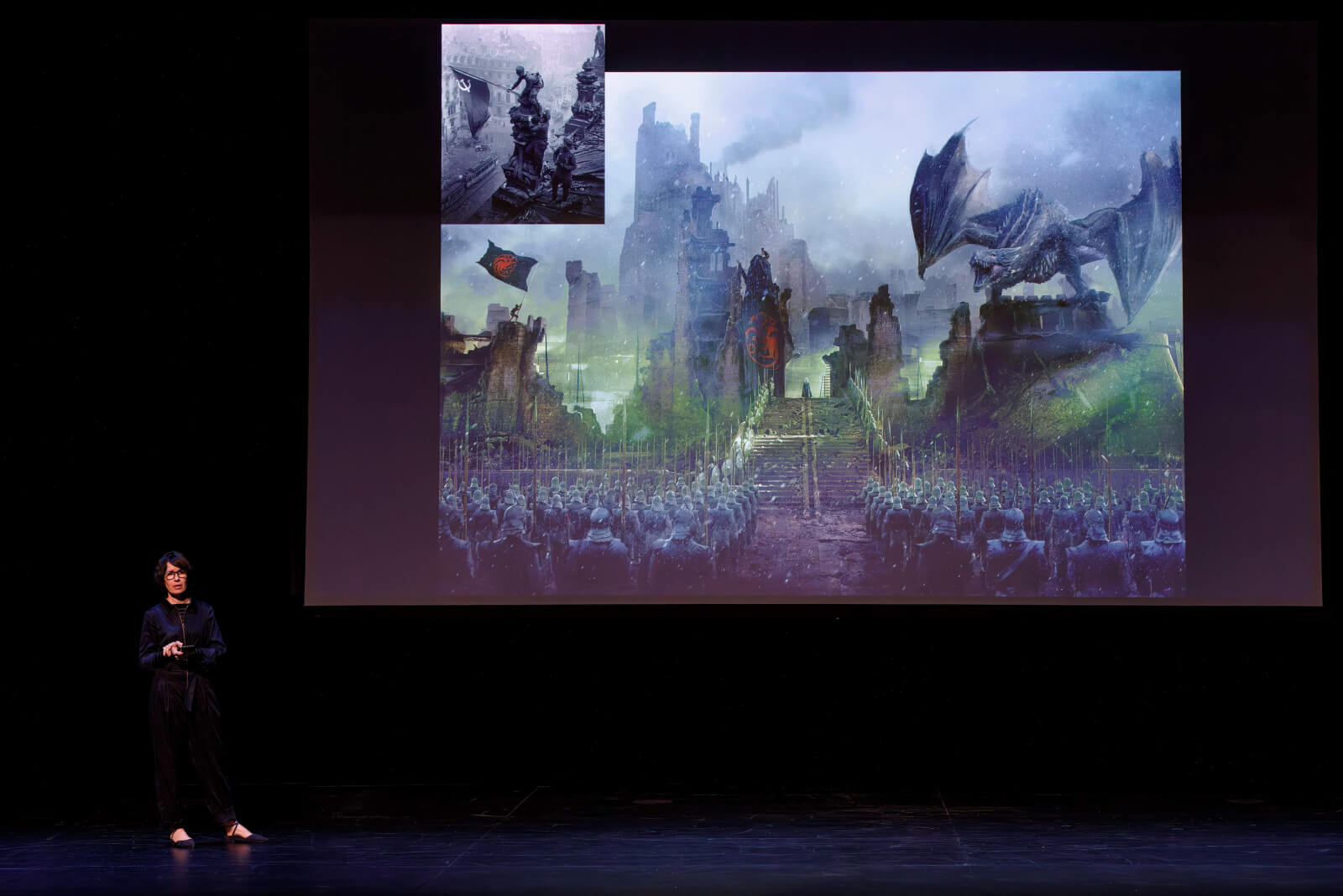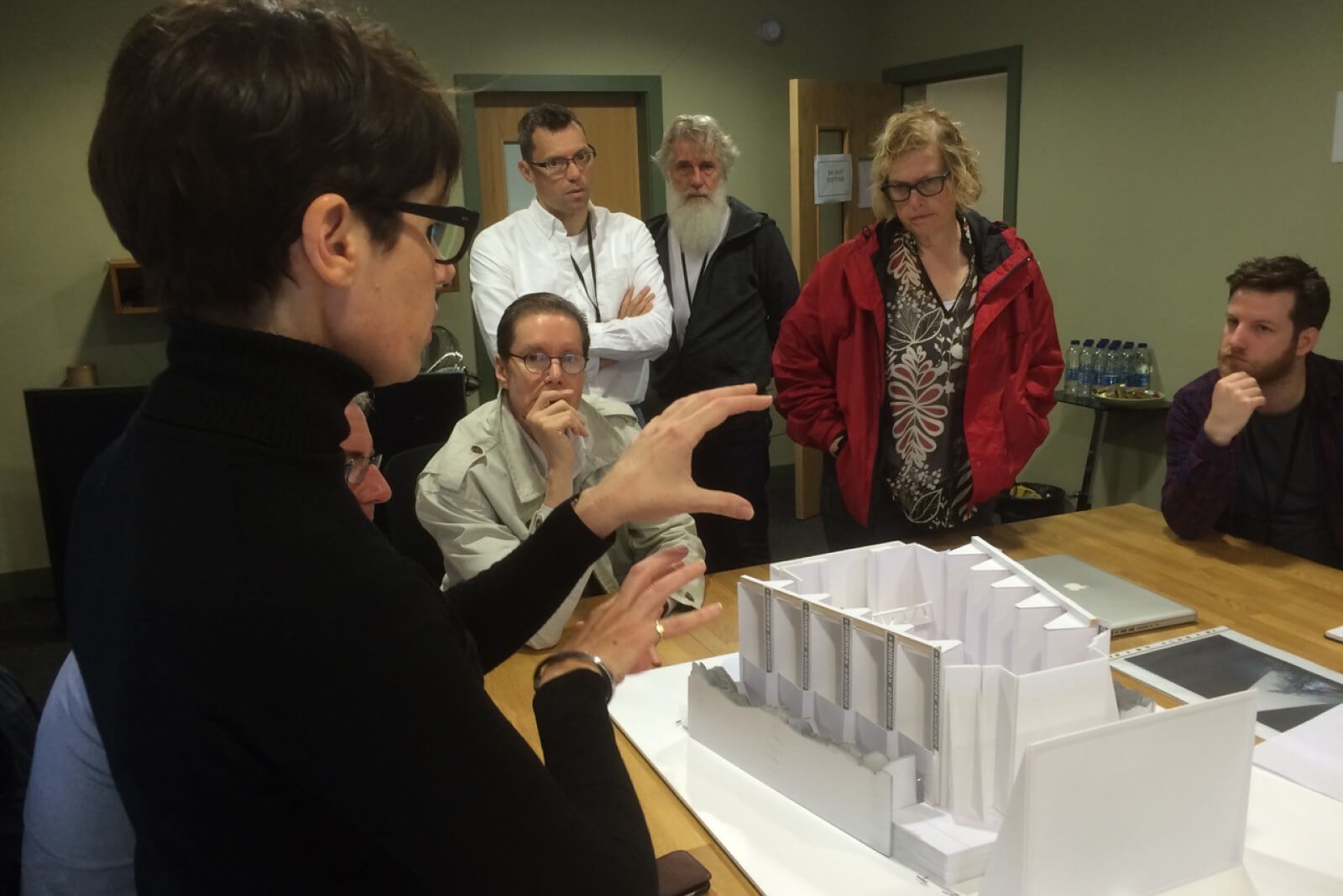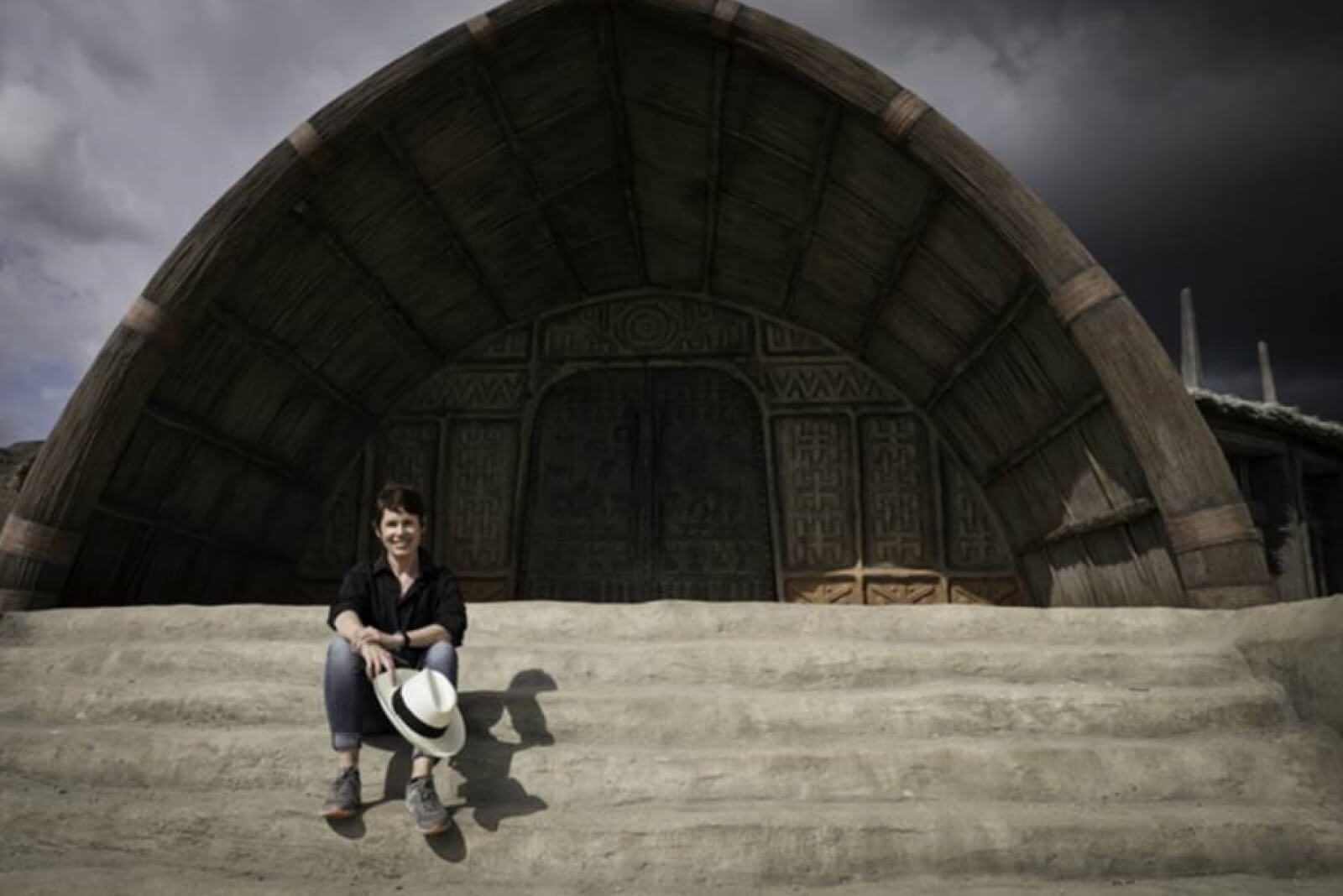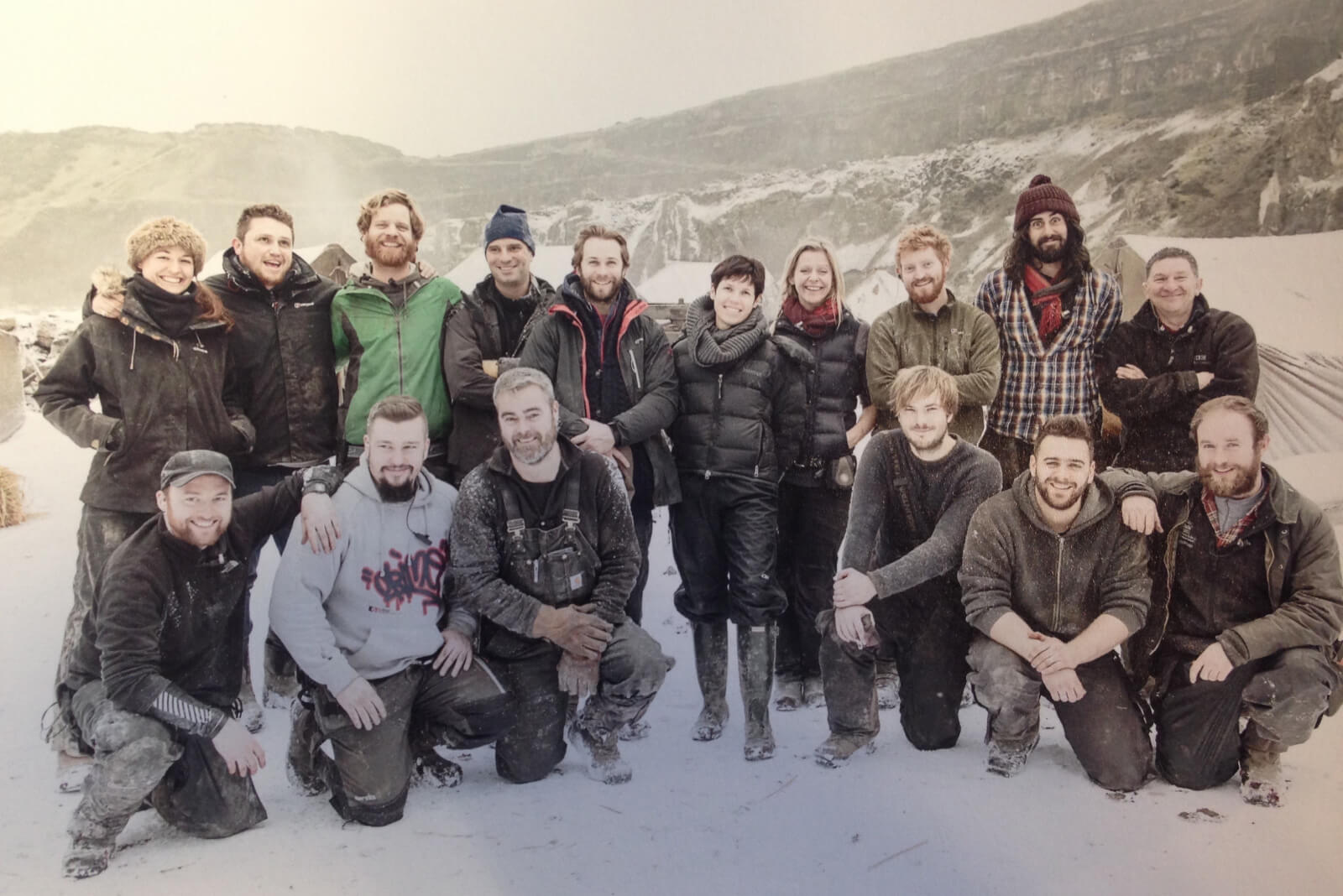Multi-award-winning TV and Film Production Designer Deborah Riley recently returned to NIDA to speak about her ongoing career and her incredible work on the global smash TV series Game of Thrones.
Deborah also spoke to NIDA about her journey to studying Design and how NIDA has helped shape her career.
On her journey to NIDA: “I had studied architecture for 3 years and found in its purest form that it wasn’t for me. After seeing Batman Returns by Tim Burton, I thought, who designs and makes those backgrounds? So, I went back to my old high school and looked up set design courses and there were only two schools at the time and one was NIDA.”

Deborah Riley during Creating the Visual World of Game of Thrones. NIDA, Kensington, NSW, 31 July 2023
What Deb took into her career from her time at NIDA: “You receive such thorough grounding, a complete immersion and such a strong work ethic from all the research, from learning how to break down a script, how to talk about character, how to speak about your work and how to work collaboratively with others, NIDA has had huge impact on my life. I moved from Brisbane to Sydney to study at NIDA and so I still have friends from that time.”
She touched on the staff and industry experts: “At NIDA there is also the people you are exposed to. We had Brian Thompson and Kim Carpenter come and work with us and I especially recall Arthur McIntyre who taught life drawing at the time, who took me aside when I was feeling lost in the course and said to me “you are a going to be ok.”
How she got her break on Game of Thrones: “In 2008, I had been in Los Angeles for 5 years and was working on a tiny film in Baton Rouge when, quite out of the blue, I received a call from Janet Graham-Borba at HBO whom I had met 5 years earlier. She told me that she had a job that I should interview for. That was Game of Thrones, after a lot of interviews with the producers, about a month later, I was in Belfast.”

Pitching Dragonstone Audience Chamber. Belfast, Northern Ireland. Game of Thrones, Season 7(2016)
On other career highlights, she mentioned the transformative experience of meeting heart transplant patients on their journey before and then watching open-heart surgery being performed as research for the Alejandro González Iñárritu’s movie 21 Grams. She also spoke about the challenge of building a giant elephant for Baz Luhrmann’s movie Moulin Rouge and the excitement of being part of the Sydney Olympics closing ceremony.
For her recent Production Design role on 3 Body Problem (coming to Netflix in January 2024), Deb worked with fellow Design alumni Michael Wilkinson (Diploma of Dramatic Art Design, 1993) who crafted the Costume Design on the series, “I’ve worked with lots of alumni throughout my career. We are absolutely everywhere.”

Deborah seated outside the Dothraki Temple. Almeria, Spain, Game of Thrones, Season 6 (2015)
Deb also shared what motivates her: “I find design very exciting and the wonderful thing about what we do is that no day or project is ever the same. Although I spent five years on Game of Thrones, the next job that I completed was a sci-fiction piece, so the ability to solve those design problems was completely different to when I was working in a medieval world. Design is everywhere, design is the thing that I really connect to and that I get the most satisfaction out of, and you are always learning something.”
Sharing some advice for students wanting to apply to study Design at NIDA: “You have to think about what you have to offer, what sort of artistic or creative background you have and how you can draw on those experiences. You have to feel confident in your abilities, and be able to talk about your work, even if that’s making films on your phone or drawings or paintings, or costume design. Whatever you enjoy, develop the ability to talk about it before your interview, because you need to be able to sell your passion for this industry and for what you can contribute to it. Passion is what NIDA fosters”.

With the set dressing team out in the fake snow of Stannis’ Camp. Game of Thrones, Season 4 (2013)
And some wise words for those embarking on a career in Design, Deb said: “Be brave and confident in your work, as you have to be able to research and present your ideas and then execute them on time and to a budget. Also, be kind. Working in the art department is very much a team sport and we all have to look after each other and work collaboratively. The industry is small and people talk, so you don’t want to develop a reputation for being difficult to work with, so I’d say what’s most important is to be kind.”
